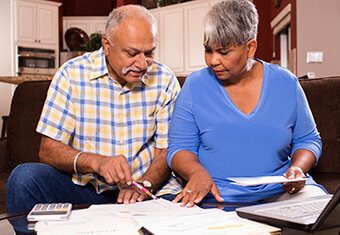A beginner’s guide to the process in England and Wales
A lasting power of attorney (LPA) is a legal document that allows you to nominate someone you trust to make decisions on your behalf if you are unable to do so yourself.
The legal term for this is ‘losing capacity’. This means that someone cannot make their own decisions about their health or money because of illness, injury or other reasons.
Why is a lasting power of attorney important?
You might assume that your next of kin can decide what happens to you if you’re not able to. But that’s not always the case.
Also, you might not want your partner, parents or siblings to decide what happens to your money or health if you can’t. If you don’t have a lasting power of attorney in place, other people could make decisions that you might disagree with.
I’m fit and well: why is a lasting power of attorney required?
None of us like to think about being incapable of deciding for ourselves about our money or health. However, our personal circumstances can change very quickly.
Lives can be turned upside down by an accident or sudden illness, or the onset of dementia. Having a plan for what will happen if we lose capacity gives us – and our loved ones – peace of mind during a challenging time. It also gives you control over who you would want to make decisions on your behalf.
Without an LPA, your family would need to apply to the Court of Protection to appoint a ‘deputy’ to act on your behalf. This may not be the person you would have chosen, it can take up to six months, and will cost £371 per application (like LPAs, these are split into two for property/finances and personal welfare) plus a further £494 if the court decides your case needs a hearing. You will also need to pay annual supervision fees (ranging from £35-£320) and a £100 assessment fee if you’re a new deputy. This compares to £82 per application to register an LPA yourself. Court appointed deputies are supervised by the Office of the Public Guardian and must write a report every year explaining the decisions they have made as deputy.
How does a lasting power of attorney work?
In a nutshell, you – the ‘donor’ – decide who you want to be your ‘attorney’ or ‘attorneys’, who will make decisions on your behalf. Your attorneys need to be people you completely trust to act in your best interests.
How many kinds of LPA are there?
Two: one for health and welfare matters, and another for property and financial affairs.
A health and welfare LPA gives your attorney the authority to make decisions about your wellbeing. This might include:
- Day-to-day matters, such as your daily routine, diet, dress and hygiene requirements.
- Your accommodation – including whether to move into a care home.
- Consenting to or refusing medical treatment, including life-sustaining treatment.
A health and welfare LPA can only be used if you have lost capacity.
A property and financial affairs LPA can be used by an attorney to act on your behalf, at your direction. This can include decisions about:
- The buying and selling of your home.
- The management of your tax affairs, benefits claims and pension.
- The management of your bank accounts and business interests.
I don’t like the idea of other people controlling my health or money. How do I make my own decisions if I still can?
There is little risk of others taking control of your welfare or finances against your will. As long as you are of sound mind, you can override the lasting power of attorney at any time by signing a ‘deed of revocation’ and sending it to the Office of the Public Guardian (OPG).
Your attorney/s should always try to help you make your own decisions and only make them for you if you are unable to do so.
The health and wellbeing LPA is only triggered if you become incapacitated, so there is no risk of anyone taking decisions about your welfare if you still have capacity to do so.
How do I set up an LPA?
To register an LPA, you’ll need to send the following forms to the OPG:
- LP1F: for financial decisions.
- LP1H: for health and care decisions.
There is also a third form, LP3, which is sent to anyone identified as a ‘person to be told’. This is an optional safeguarding measure, which allows you to notify up to five other people that you are setting up an LPA.
You will choose an attorney or attorneys to act on your behalf, and specify how you want them to do this. You will choose whether they act jointly or separately.
You will also need to choose a certificate provider who can be a friend or colleague who has known you personally for over two years or a professional contact such as a doctor or a solicitor. The certificate provider will need to confirm your capacity at the time of registration.
You, your attorney/s and your witnesses will need to sign the forms before they are submitted to the OPG. This can be done online or by post. If your LPA is approved, the OPG will send back a stamped copy. The LPA will not be valid until you have received this confirmation.
Registering your LPA normally takes 8-10 weeks, though you may have to wait for as long as 20 weeks, assuming there are no mistakes in the application.
How much does it cost?
There is a £82 fee to register your LPA with the OPG. People on a low income may be eligible for a 50% discount on this fee, and those receiving some benefits may not have to pay anything.
What about other parts of the UK?
This article applies to English and Welsh LPAs. Different rules apply in in Scotland and Northern Ireland.
How do I get help with setting up an LPA?
STEP has members who are experts at setting up LPAs and can also give you peace of mind by advising on how best to write your will. Use our Find a TEP service to find an expert near you.
 UK
UK  Canada
Canada




